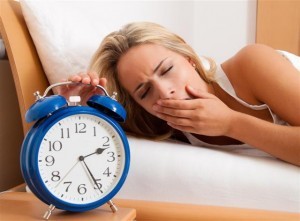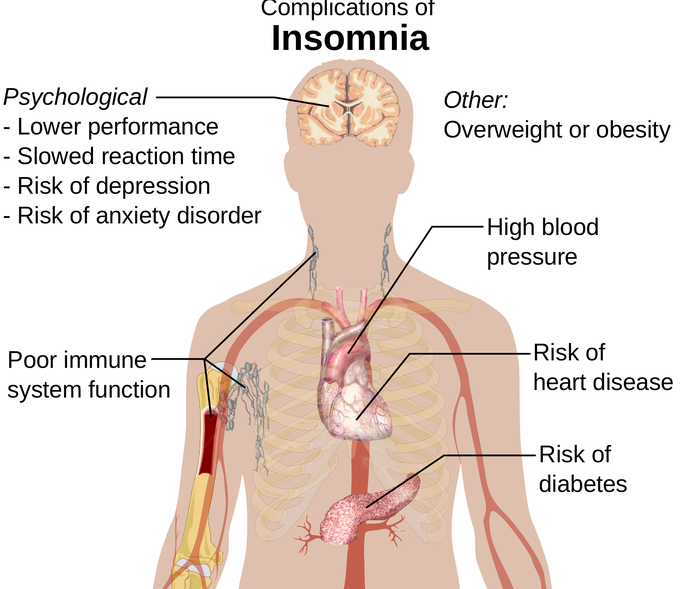How Chronic Insomnia Destroys Skin Health
How Chronic Insomnia Destroys Skin Health – The importance of Sleep
You may take sleep for grunted because of the economic situations around you. Things like tight work schedule and deadlines will not let you have adequate sleep as you would want. And because these deadlines are there on a monthly basis you are becoming used to sleeping for fewer hours. How chronic insomnia destroys skin health is what we want to discuss in this article. It is true that majority of us have witnessed the adverse cosmetic impact on the face caused by just one night of sleep deprivation. When this happens you wake up frowning, tired and exhausted throughout the day. In the process a very young person may look a decade older in response to stress-induced changes in facial tissues that often accompany insomnia. How chronic insomnia destroys skin health is one of the many skin care issues professionally addressed at AWAREmed Health and Wellness Resource Center under the able leadership of doctor Akoury’s care. Therefore if these articles are describing your situation, then all is not lost for you because a phone call to the home of skin experts (AWAREmed Health and Wellness Resource Center) will be the beginning of your freedom to all skin complications you may be having.
How Chronic Insomnia Destroys Skin Health – The skin tissues
Not very many people are aware of the consequences of chronic insomnia actually chronic insomnia inflicts significant damage to skin tissues ranging from premature aging to disorders like eczema, psoriasis, and atopic dermatitis. Throughout this article we will look at the various natural methodologies that can help you get a full night’s sleep and enjoy refreshed, healthy-looking skin. In spite of your work schedule and employment demands, it is still very important to maintain healthy, youthful-looking skin. Doctor Akoury an expert in skin care and insomnia recommends that you get at least 7 to 8 hours of restful sleep each night. We appreciate that in today’s hectic, stressful world that may be very difficult for most people to do. However failure to do so will take heavy toll on skin health and overall health as in the long run.
Numerous studies have established that stress-induced sleep debt (insomnia) can dramatically impair skin function and integrity. This single condition will come with other skin health problems like inflammatory skin conditions as eczema and psoriasis; sleep deprivation can exacerbate both allergic and irritant contact dermatitis. Unfortunately, many victims of these sleep liability related health conditions don’t take the right action to treat them because they don’t recognize the real source of their problem.
Poor sleep quality often accompanies normal aging. Fortunately, scientists have identified some of the underlying mechanisms that interfere with healthy sleep patterns as humans mature. For instance, insufficient or poor-quality sleep has been associated with elevated stress-hormone (cortisol) levels and increased mortality from all causes. A decline in the body’s melatonin production is a well-known underlying factor for sleep problems in older adults. This is often accompanied by other health conditions.
How Chronic Insomnia Destroys Skin Health – Collagen
This is one of the skin’s primary components which play a key role in its structure and integrity and healthy elasticity and youthful appearance. Sleep deficit can affect the optimal process of the skin’s collagen formation.
A crucial function of the skin is to maintain a barrier that prevents excessive water loss and blocks entry of toxic foreign substances. The cascade of events that occurs during the process of collagen formation is highly dependent on immune synchronization that is initiated during restful nights of sleep.
How Chronic Insomnia Destroys Skin Health – Insidious Link between Sleep Debt and Skin Aging
Numerous studies have established that stress-induced insomnia can dramatically impair skin function and precipitate numerous skin disorders. Sleep researchers have found that animals subjected to prolonged sleep deprivation develop ulcerous lesions on their legs and suffer increased risk of bacterial invasion through the skin owing to a breakdown in skin membrane integrity.
In humans, sleep debt and stress have been definitively linked to skin disorders so much so that an entire sub-specialty of dermatology has developed over the past two decades called psychodermatology. It emerged after an abundance of published studies revealed that many skin conditions respond well to antidepressants and anti-anxiety medications, in addition to traditional dermatologic interventions.
Scientists attribute the link between chronic insomnia and skin disorders to the immune-modulatory or immune-altering effects induced by the release of excess glucocorticoids triggered by sleep debt and stress. As the name suggests, this class of hormones regulates the metabolism of glucose. Every cell in the human body possesses receptors for glucocorticoids. Glucocorticoids also happen to play a central role in immune function. (Cortisol is the most important of the glucocorticoids.) Excess glucocorticoid production has been shown to negatively affect nearly every tissue in the body and accelerate the aging process.
In terms of skin health, the sequence of events involved in the formation of collagen is highly dependent on the immune-balancing processes initiated during restful nights of sleep. As the major structural component of your skin and other bodily tissues, collagen protects against UV damage and bacterial infection, maintains your skin’s elasticity, seals in moisture, and preserves its youthful, healthy appearance.
This nighttime balancing process is disrupted in the presence of excess glucocorticoids (cortisol in particular). Sleeplessness ultimately has a cumulative immunosuppressant effect. Of particular significance for skin health are reduced levels of interleukin-1 (IL-1) observed in insomnia sufferers. At healthy levels, this protein triggers increased white blood cell production in response to foreign invaders and plays a central role in the production of collagen. Therefore when levels of IL-1 are too low, collagen formation deteriorates. This is how chronic insomnia can cause skin disorders related to immune dysfunction. In addition to inducing such inflammatory skin conditions as eczema and psoriasis, sleep deprivation has been shown to aggravate both allergic and irritant contact dermatitis.
Finally learning from this article and even others posted on this link will only be meaningful to you if you make another step of practicing what you are learning. Remember that how chronic insomnia destroys skin health can be very wide and elaborate. You must not allow these worthy pieces of information about protecting your skin go in vain. Get the experts at AWAREmed Health and Wellness Resource Center involved in every step you take. This way doctor Akoury and her team of experts will help you revamp the beauty of your skin giving it a new lease of life for a very long time.
How Chronic Insomnia Destroys Skin Health – The importance of Sleep



 This refers to a brief period of lack of sleep. This type of insomnia is mostly caused by life events and circumstances for example when you go to bed after receiving a stressful news or an unexcpected news that is too overwhelming. Acute insomnia will affect you for the least time and resolves without any medical intervention.
This refers to a brief period of lack of sleep. This type of insomnia is mostly caused by life events and circumstances for example when you go to bed after receiving a stressful news or an unexcpected news that is too overwhelming. Acute insomnia will affect you for the least time and resolves without any medical intervention.








 Depression Help, Defeat Depression
Depression Help, Defeat Depression






